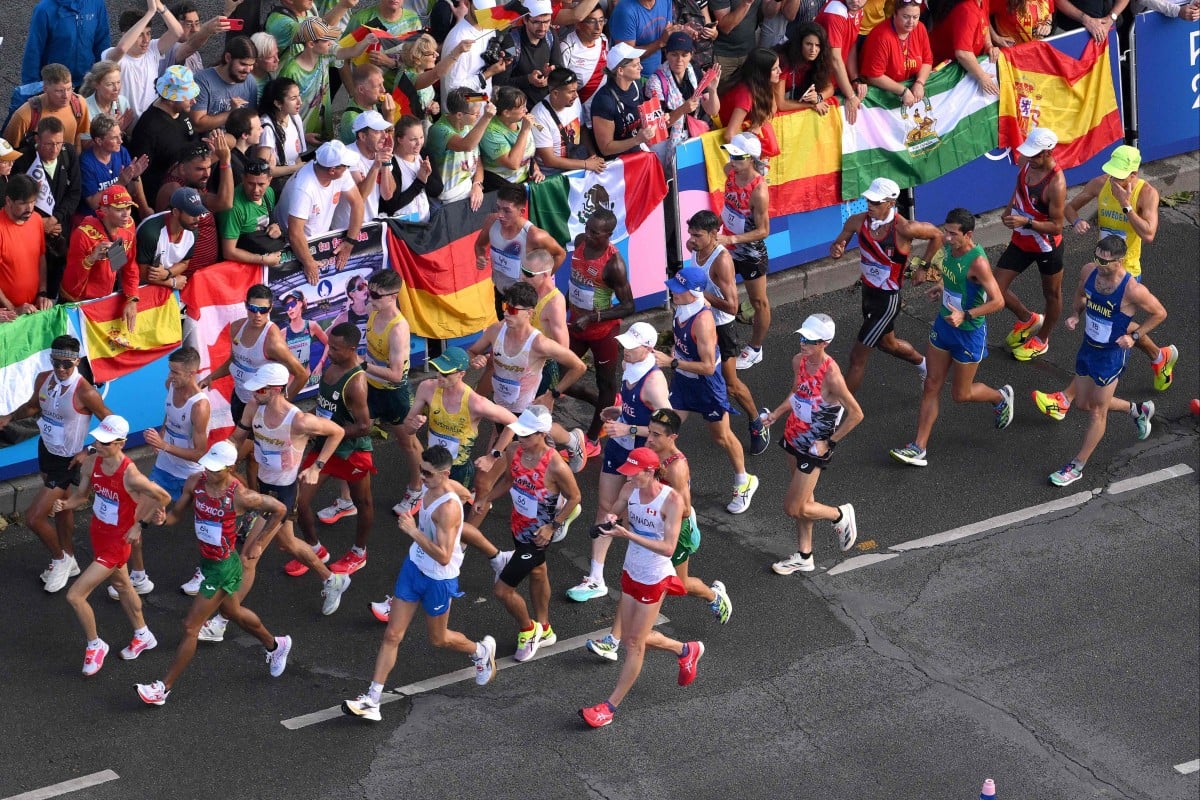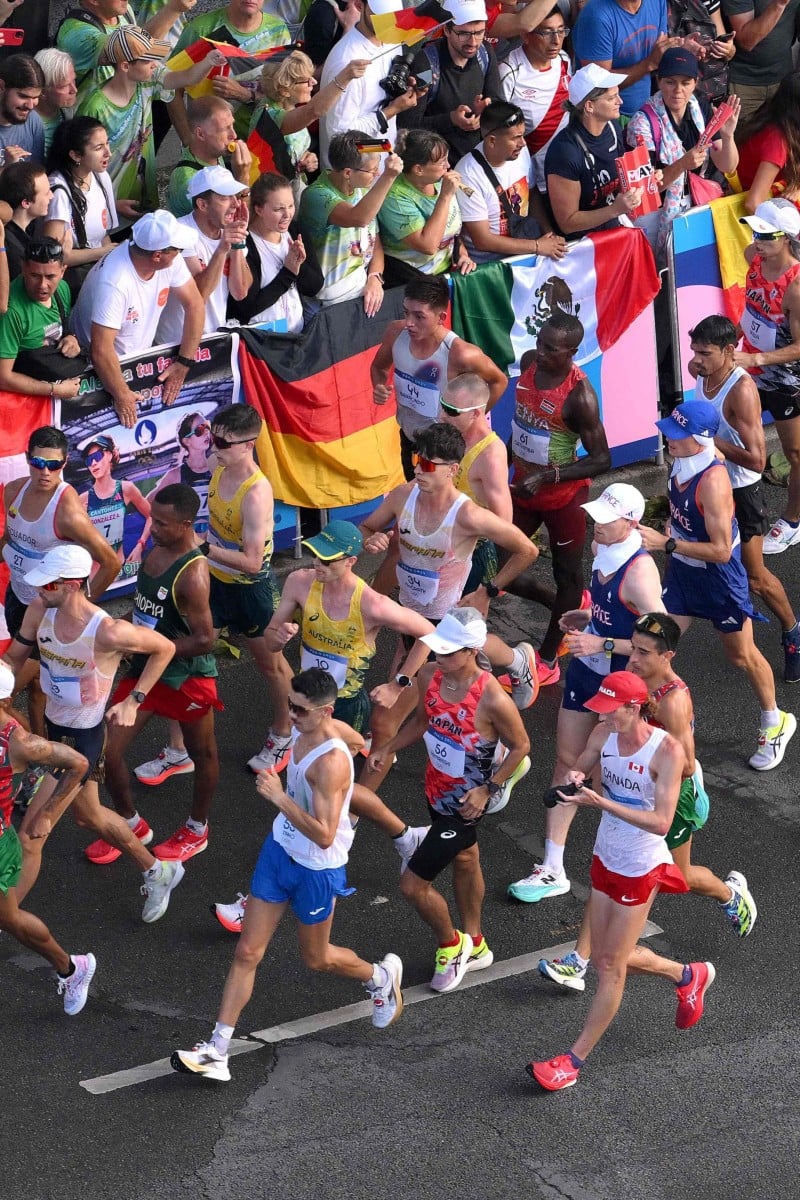
 Athletes compete in the men’s 20km race walk of the athletics event at the Paris Olympics on August 1, 2024. Photo: AFP
Athletes compete in the men’s 20km race walk of the athletics event at the Paris Olympics on August 1, 2024. Photo: AFPThe 2024 Paris Olympics are in full swing, but with the scorching summer heatwaves, many are concerned about the athletes’ safety.
In a report on heat risks at the Summer Games, World Athletics president Sebastian Coe wrote: “While global temperatures continue to rise, climate change should increasingly be viewed as an existential threat to sport.”
Athletes who competed in the Tokyo 2021 Olympics had to endure extreme heat and humidity. One archer fainted, and three tennis players had to stop midway through their matches due to heat-related conditions, which they all described as “brutal”.
6 fun, unique sports you won’t see at the Games this year
The intense heat also forced some competitions to be rescheduled, which may have disrupted the athletes’ routines and affected their performance.
According to the World Meteorological Organization, heatwaves have become more frequent and intense since the 1950s. Extreme weather events are becoming more severe as global temperatures rise year after year.
The US Department of Health and Human Services has also reported that heat-related deaths in the country have steadily increased over the last few years, from 1,602 in 2021 to 2,302 in 2023.
How does heat affect athletic performance?
High temperatures cause significant water and salt loss through sweating. If these are not replaced immediately, it can result in heat exhaustion and even heatstroke, a serious medical emergency that occurs when the body cannot control its internal temperature (see graphic).
Sports like football and field hockey are very risky in hot weather because athletes wear protective gear that can trap sweat. This makes it harder for the body to cool down through evaporation, increasing the risk of heatstroke.
What can athletes do to protect themselves?
Hydration is necessary for proper muscle function. Sports drinks are high in potassium and sodium, which help the body maintain its fluid and blood volume. Drinking these before, during, and after exercise can help replenish electrolyte levels. The carbohydrates in sports drinks also give the body a quick boost during exercise and help replenish energy stores afterwards.
Athletes can also train to adapt to hot weather before a competition. This means repeatedly exercising in a similar environment to the competition, which increases the body’s core and skin temperature and encourages more sweating.
Using pre-cooling strategies such as ice vests, cold towels, and fanning can also help reduce core body temperature.
Warm up in the shade, avoid unnecessary sun exposure, and ensure you have cold drinks nearby to help you cool down. Of course, wearing and reapplying sunscreen is very important, too!

